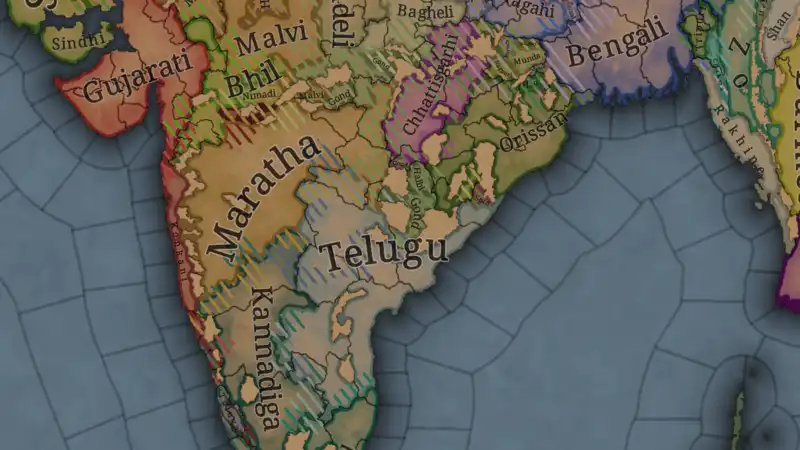While other developers adhere to promotional schedules created at great expense by dedicated professionals, publisher Paradox Interactive knows that some things need not be bothered. All it takes is a little showing off of the world map and a little talk about the complexity of the population, and the Europa Universalis epic will reveal itself like a hungry shark drawn to the blood of its prey.
A new blog post by Johan Andersson, studio manager of Paradox Tinto, basically begins to talk candidly about the elements of "Project Caesar" and shows them off. Andersson is the creator of the series and founded Paradox Tinto in 2020 after working at Paradox for over 25 years, initially in support of Europa Universalis 4. The simulation of population is the basis for everything: economics, politics, wars, etc. To give a brief background, Europa Universalis is a global grand strategy game in which you lead a chosen nation from roughly the 15th century to the early 19th century.
This is a rough outline of a game that delves into everything from diplomacy to religion to technology in surprising detail, and it is precisely in the details that the bulk of the game's appeal lies. Andersson talks about how the new game simulates people, or "pops," and how they influence events. [A] single unit of people in a place can be any size, from one to a billion, if the three attributes of culture, religion, and social class are the same," Andersson writes. Such a unit of people we call a "pop." He goes on to list some of the characteristics that are being tracked:
There is a bit of an aside in the religion category: "Nothing new here." This is probably because it has been an element of "Europa Universalis" since the very first game. Other statistics include literacy, which affects the technological progress of a country, but also rather existentially "affects people's understanding of their status in life."
Elsewhere, Anderson describes pure Europa Universalis. Pop has a level of satisfaction, and if it is low, there is a problem, which is affected by everything from religion, cultural views in relation to the major cultures, status, regional instability, "specially scripted situations," and "some things we can't talk about yet." Why stop Johan now?
Pops affects "the military, economic, and political parts of the game" and can grow or decline over time, assimilate other cultures, convert religions, and in some cases emigrate.
Now for some details on the scale. There are now 27,518 unique locations on the map, 10 times more than in Victoria 2: "We are building the game based on decades of experience, and so far the performance impact of having pop is not noticeable"
.
And the man left, promising only to return next week to talk some more about the government. Needless to say, we'll have to wait for an official announcement, but it seems certain that Project Caesar is Europa Universalis 5, and judging by the responses below, Andersson's post seems to focus on what fans want to see. Perhaps a sequel to the excellent "Imperator": it could be a sequel to "Imperator: Rome," a spin-off from the EU series, but in one of the photos Andersson has published, there is an Islamic symbol in the population tab: Islam was founded in 610 A.D., which is outside the setting of Imperator.
The blog post ends with an image of Andersson saying, "Some people might like it." A screenshot of names and numbers may not seem the most interesting, but perhaps the necessary context is that the player in EU4 is the famous 2nd Rome-pilled If the start date of EU5 is a bit earlier than EU4, then what we are seeing is someone It would mean a screenshot of Byzantium being successfully reclaimed from the Ottoman Empire. What we are seeing is a screenshot of someone who has succeeded in taking Byzantium back from the Ottomans.
.

Comments